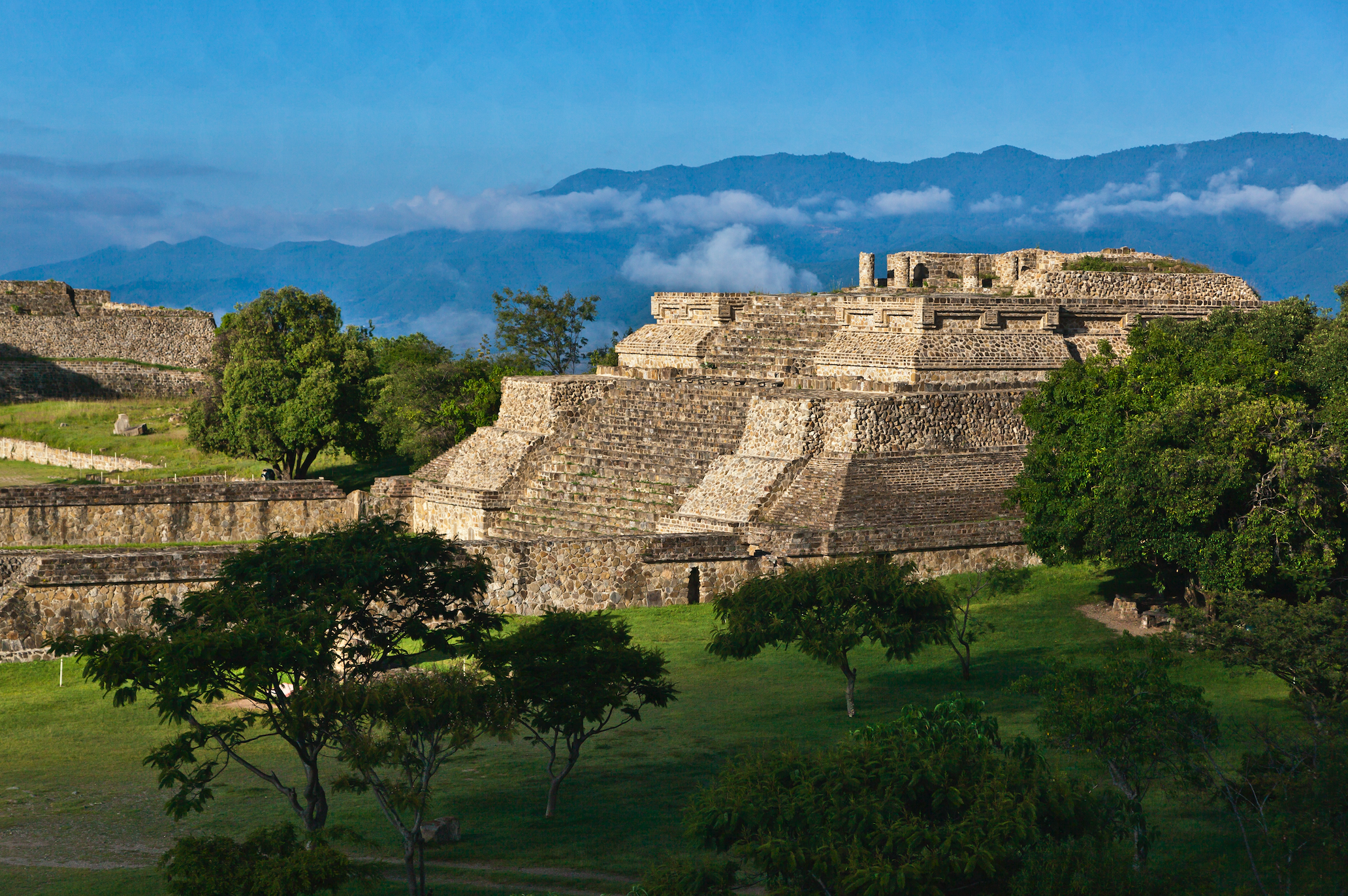Latin America
Related: About this forumEquality was key to ancient Mexican city's success, study suggests
Last edited Thu Mar 17, 2022, 02:45 AM - Edit history (1)
At its peak Monte Albán was home to 17,000 people, despite a lack of water supplies or fertile land
Mattha Busby in Oaxaca
Wed 16 Mar 2022 13.29 EDT
Greater equality than that experienced in other Mesoamerican cities may have been key to the successes of an ancient Zapotec community in Mexico which survived far longer than any contemporaneous metropolis, a new study suggests.
The ruins of Monte Albán – which include pyramids, canals and a ballgame court – sit on a semi-arid hilltop above the city of Oaxaca. At its peak the city, founded in 500BC, was the administrative and religious capital for the Zapotec people, and home to 17,000 people, despite a lack of water supplies or fertile land.
The peer-reviewed paper, published in Frontiers in Political Science, suggests that less extreme divides in wealth and power could help explain the city’s rapid population growth, as people sought both security and a higher standard of living.
It indicates that collective processes directed from below may have significantly contributed to the 1,300-year period of relative prosperity. Globally, it is rare for a single settlement from that era to have endured so long, the authors add.
More:
https://www.theguardian.com/world/2022/mar/16/monte-alban-mexico-zapotec-community-oaxaca
(Interesting visuals)
On edit:
I couldn't find any videos in the time I had which contained nearly enough information, sorry. Please post 'em, if ya got'em!
I_UndergroundPanther
(12,462 posts)If you want civilization to last a long time.
Judi Lynn
(160,456 posts)Judi Lynn
(160,456 posts)PART 2:
Judi Lynn
(160,456 posts)Monte Albán thrived as an ancient collectivist society and died out when extremes in wealth and power developed, according to archaeologists.
By Becky Ferreira
March 9, 2022, 8:00am

A TEMPLE AT MONTE ALBÁN. IMAGE: CRAIG LOVELL VIA GETTY IMAGES
Monte Albán, an ancient Mesoamerican city in Mexico’s Valley of Oaxaca, flourished for 1,300 years, from its founding around 500 BC to its decline by 800 CE. Perched on a strategic hilltop, the city supported tens of thousands of people at its peak and was the major hub of this influential region, despite the fact that the surrounding region was not abundant with fertile farmland. Something other than agriculture must have attracted people to the city, and a husband-and-wife research team think they have the answer.
Monte Albán, an ancient Mesoamerican city in Mexico’s Valley of Oaxaca, flourished for 1,300 years, from its founding around 500 BC to its decline by 800 CE. Perched on a strategic hilltop, the city supported tens of thousands of people at its peak and was the major hub of this influential region, despite the fact that the surrounding region was not abundant with fertile farmland. Something other than agriculture must have attracted people to the city, and a husband-and-wife research team think they have the answer.
“Throughout its history, Monte Albán did not have stark differentials, whether you look at health, house size, or access to certain kinds of artifacts,” said Gary Feinman, who is the MacArthur curator of anthropology at the Field Museum in Chicago and a co-author of the study, in a call.
“When we say this was a relatively collective governance, we're not saying this was utopian or entirely egalitarian, and everyone was equal in a commune,” he noted. “There were clearly people who were somewhat better off than others and there were clearly people who were office holders or leaders or coordinators even from the outset, because he could not you could not have that many people making a decision without some kind of leadership. But our view is that the power was not concentrated in one individual or even one family; it was more what we would call distributed power.”
More:
https://www.vice.com/en/article/y3vexw/the-secret-to-this-ancient-citys-success-was-collectivism-study-says